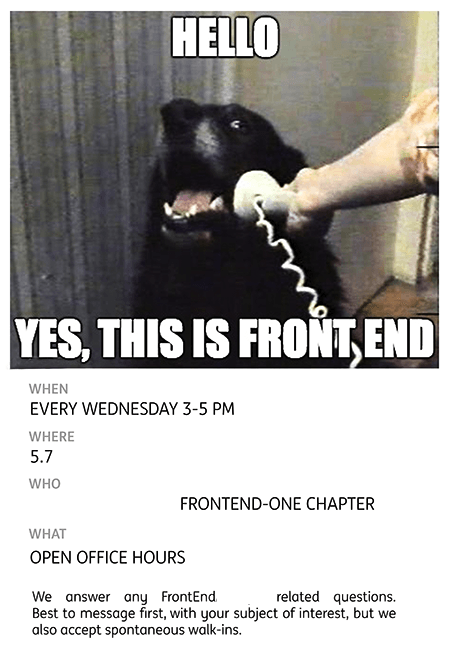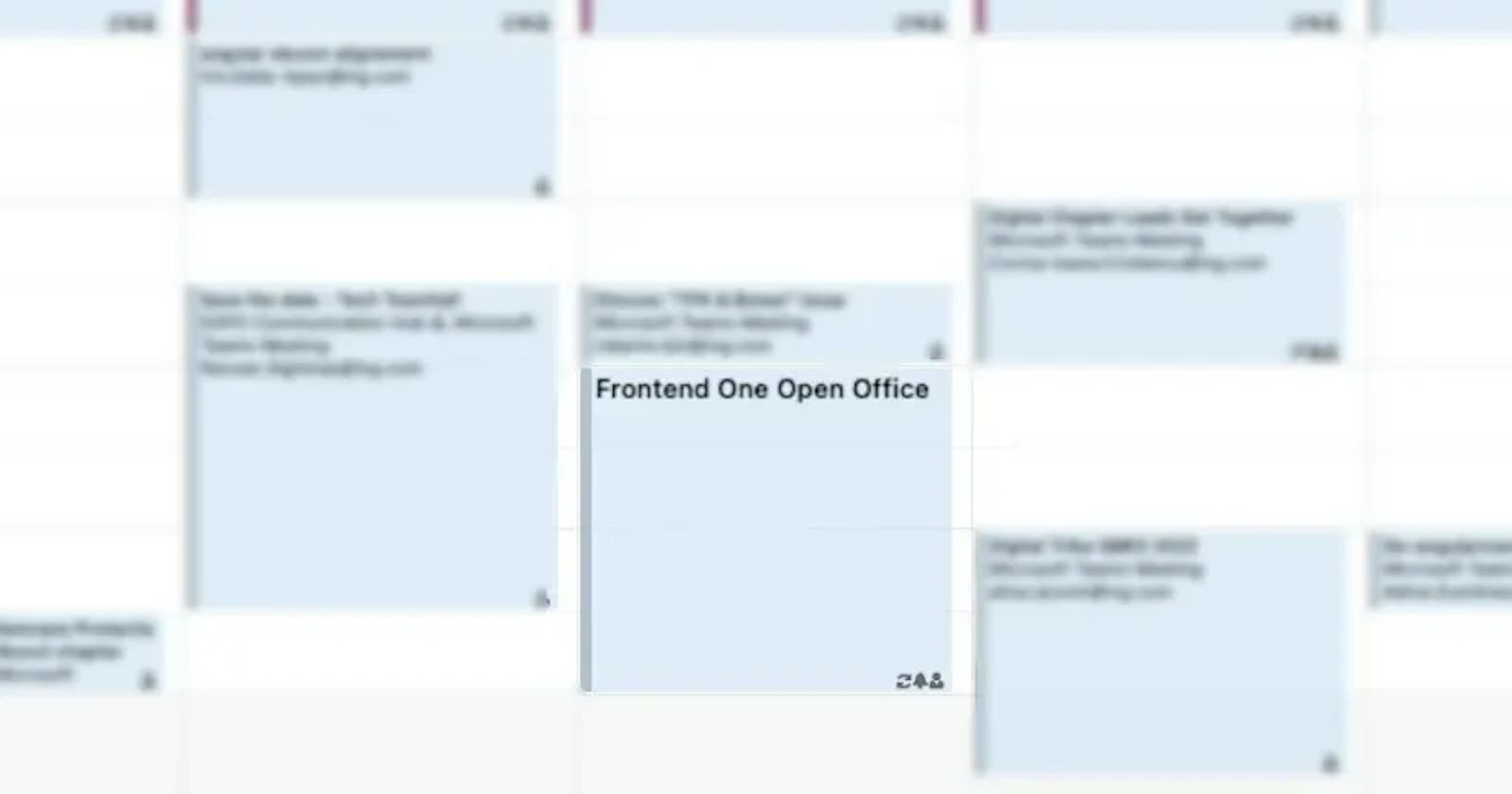I've led a Frontend Chapter for three years and this is the idea I'm most proud of
One way of coping and improving collaboration in a scattered chapter across squads delivering a top tier service.
A chapter is very much different from a squad or a delivery team, especially when it comes to collaboration channels and time spent together.
Let's see how each type of team has the privilege of a collaboration scene:
| Squad | Chapter |
| Agile Ceremonies | Repositories and Projects |
| Backlog | Working Guidelines |
| Product Owner | Technology |
| (Production) Incidents | CI/CD procedures |
If we take a two-week sprint, the squad has a net advantage on time spent together: 1-hour planning + 2h grooming(s) + 1h retrospective we get 4h, not to mention the daily stand-ups, 10 x 10mins equaling almost another 1 hour and a half.
The chapter has its chapter meeting which can be weekly or once per sprint .. and, that's it. I needed to address two issues the chapter faced in the tribal model, that few talk about:
The chapter is disadvantaged on time spent together. It can never compare to the time spent in the squad. The squad takes first place in the hearts of the people. It's hard to compete with people striving together in the same sprints, the same backlog, and that get to hear one another every. single. day.
When domains of ownership fall short in between squads, the Chapter (Lead) is the one all people reach for. I've seen it too many times - the Chapter Lead becomes a proxy for any chapter inquiries from other areas.
I felt there was room for something that can address both, so I created a public, free-to-attend, 2-hour weekly meeting with all frontends, having them work in one big room, which I called Frontend Open Office Hours. When we transitioned to hybrid work (read "remote work"), we switched to an online Teams get-together meeting which proved to be well-suited for code sharing and live peer programming with an audience.
As I much later read about it, in "An Elegant Puzzle" by Will Larson, one of the time thieves, interruptions, can be fought with
"A strategy here is to funnel interruptions into an increasingly small area, and then automate that area as much as possible."
Yes, he was referring to cookbooks, opening request tickets and such, but this weekly meeting was my way of funnelling questions.
To make it successful, you need to tick the following boxes:
make it accessible to anyone in your organisation. I organised the meeting under a public Teams channel, and the chat is also visible to anyone.
invite other people to join, but don't push the meeting into their calendars. Simply advertise it every time they have a question - "Why don't you come by during our Open Office Hours? And ask us there, I bet my colleagues can help you even better". Make it grow organically. People will talk about your Open Office hours!
invite your chapter to bring up questions or impediments in their work. Create the necessary psychological safety to ask any questions.
This is the exact wording of our Open Office Hours, which runs weekly, on Wednesdays, from 3 to 5 pm.
Weekly, during this interval, the Frontend One chapter is available to all colleagues, in this Teams call, to answer any frontend-related questions. Best to send us your questions beforehand, but we also welcome spontaneous walk-ins. If there are no questions from guests, we'll just mind our own business and share our project-related issues during the call. You are nevertheless welcome to attend, Thank you, Mihnea

Things I observed after running it for so long:
don't expect too many visitors. People will get very excited that they too can join this get-together of developers, and that they can ask any questions - but they won't :) We're all so very busy with our work; at least there's no slack for that in my org.
some open-hours will be crazy short. It's not a problem, some weeks are dull, and others are more eventful
other times people will take the opportunity to chit-chat. Let them be; people need rapport, especially when working with remote teams.
take the opportunity to spice up the series with interesting talks and showcases. Show them interesting cutscenes of online classes, or short conference talks on youtube. Show them the Wat talk. Have fun as a team!
everyone in the organization will talk positively about the transparency and collaboration of your chapter. Great teams are teams that make room to help others.
If you lead a chapter, let me know how else you encourage efficient collaboration and transparency. If you're not doing it already, would you dare create a recurrent call for Open Office Hours and advertise it to the other chapters?
